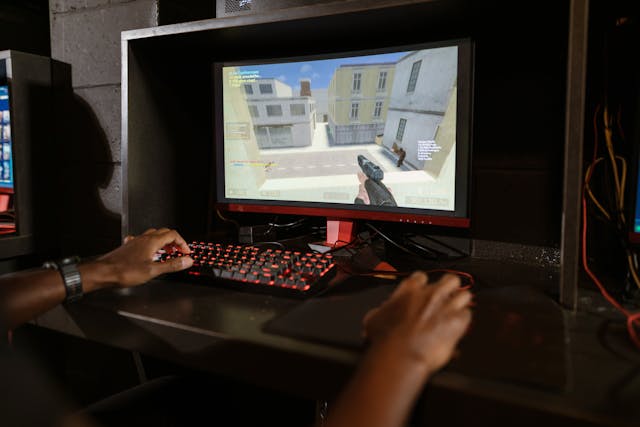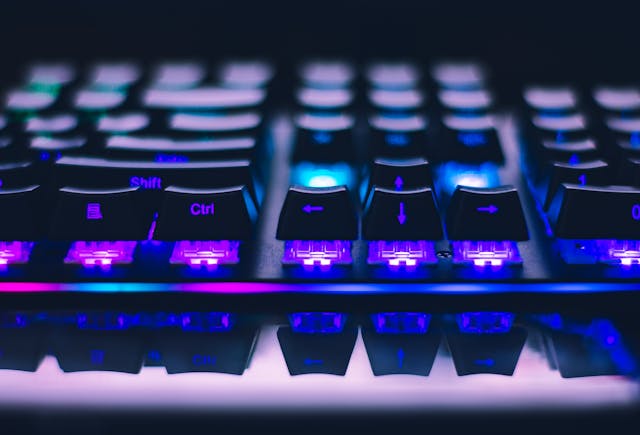A reader recently tipped us off to an interview from back in July on GamerTag radio featuring the owner of Destructoid. Yanier “Niero” Gonzalez was on the GamerTag podcast talking about the business of blogging and wading through the current landscape of online media in a post-#GamerGate industry, and issues of disclosure.
On the subject of #GamerGate, Gonzalez stated in the GamerTag radio interview…
“I think overall… GamerGate is positive. It challenges websites like [Destructoid] and many others to be more transparent with the readers. That’s really the core of it.
“GamerGate hashtag has been used by various types of people to promote their own interests, which has kind of muddled the message, so GamerGate means a lot of things to a lot of different people.
“[…] It reminds me of when I first started, and I had this innate distress of the magazines where I was I’m like ‘you guys are selling the cover stories’ (which still happens) ‘you guys are not being transparent about the sponsored content you’re plugging on YouTube’ (Pewdiepie) and that stuff needs to be disclosed.”
You can listen to the whole podcast with the embed below. The discussion about #GamerGate starts at the 29 minute mark.
As far as positive changes in the industry is concerned, Heat Street reminds people about the #GamerGate campaign to put the fire under the FTC to update their guidelines regarding disclosures for Let’s Play videos, video game reviews and new media content. A site called This Is Video Games also has a timeline of achievements and accomplishments when it comes to restoring ethics in journalism.
Gonzalez also brings up the point about the fine line between holding journalists to standards and going on witch hunts, saying…
“[…] There’s also the unfortunate side [of #GamerGate] where it’s kind of like a witch hunt… where it’s like gaming industry and other people who are friends of other people in the gaming industry and it’s like illegal to network, which is kind of scary. Like… how are we supposed to learn and network?”
The host makes the cogent point of saying that it’s not bad to make relationships with those within the industry but it’s also important to be “real” with the readers and disclose it to the audience.
Interestingly enough, Gonzalez explains why some social media chatter amongst journalists and those within the industry has been kept to a minimum since #GamerGate blew up, saying…
“I think a lot of journalists did a step back on social media, because we don’t really want our lives and our families being put under a microscope. So that’s the ugly side of GamerGate… especially women in the gaming side were hit the hardest, and that’s really sad.
“It’s a passionate audience. Gamers can be the best people in the world, but if they think you’re trying to pull something on them [then] they’re the worst.”
For those of you unfamiliar, Destructoid’s role in #GamerGate started when former editor-in-chief Dale North was one of the first to update the Destructoid ethics policy following the flair-up of #GamerGate, which also included other sites like Polygon and Kotaku updating their ethics policies as well. Disclosure became a top priority for the site and a few others, especially after charges of nepotism and conflicts of interest were levied at Destructoid following an admission of guilt by former staff writer and former Gearbox Software employee, Anthony Burch.
The site later came under fire when the infamous Game Journo Pros blacklisting story came to light, implicating various members from the group – compiled of various managers, editors and writers from top tech and gaming sites – working in collusion to out former Destructoid writer Allistair Pinsof in order to appease certain members of the Social Justice Warriors clique after Pinsof fell out of favor with them [Full disclosure: I used to be a member of the Game Journo Pros].
Since then, Gonzalez has tried keeping a low profile, working behind the scenes to refocus efforts on building Destructoid back up as a brand. The site has not been given any leniency by the denizens of #GamerGate, as there are serious efforts by the community to reshape both video game and mainstream media journalism into something more ethical.
(Main image courtesy of Modern Method)






